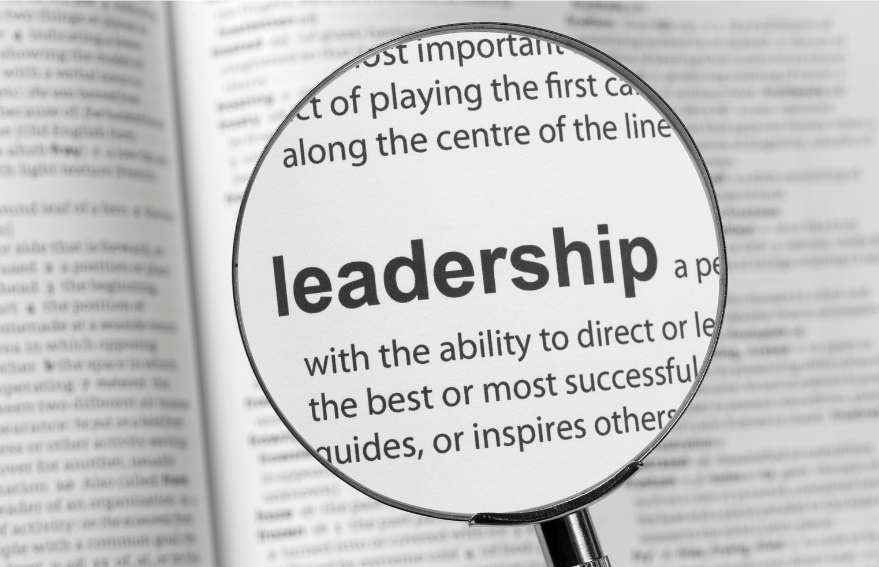In today’s ever-evolving world, leadership goes beyond traditional roles and positions. It has transformed into a mindset—a way of thinking and approaching challenges confidently and purposefully.
The leadership mindset is more than managing tasks; it empowers individuals to inspire and influence others toward a common goal. It is a choice to step up, take charge, and make a positive impact, regardless of your title or position.
This blog article will delve into fundamental principles, strategies, and techniques to help you cultivate your innate leadership potential. We’ll explore the importance of self-awareness, emotional intelligence, effective communication, and resilience—the essential components of successful leadership.
Let’s dive in.
What is a Leadership Mindset?

A leadership mindset means operating from core values, beliefs, and attitudes that encourage you to lead and positively impact various areas of your life.
At its core, it involves a willingness to take the initiative and navigate uncertainties and obstacles with resilience and determination.
A key aspect includes self-awareness, which requires understanding your strengths, weaknesses, and values and effectively recognizing and managing your emotions. Effective communication skills are also necessary, as leaders with this mindset are great at expressing their ideas, actively listening to others, and building solid relationships based on trust and collaboration.
Furthermore, leaders with this mindset embrace continuous learning and constantly seek opportunities to expand their knowledge, develop new skills, and adapt to changing circumstances. They welcome obstacles as opportunities for growth and encourage a culture of innovation and improvement within their teams and organizations.
Ultimately, the leadership mindset is about empowering yourself and others to achieve collective success, nurturing a positive and inspiring environment, and leaving a lasting impact on individuals, teams, and communities.
Benefits of a Leadership Mindset

Beyond traditional ideas of authority and management, research has found this particular mindset to offer a unique set of benefits that can help you navigate effectively, inspire others, and create positive change.
Here are five transformative advantages of adopting a leadership mindset:
Personal Growth and Self-Development
It promotes personal growth by fostering awareness and continuous learning. Leaders who prioritize self-reflection and seek feedback can better understand their strengths, weaknesses, and areas for improvement.
Developing these skills can enhance your decision-making abilities, build resilience, and cultivate a growth mindset. This commitment to self-improvement can propel your development and inspire those around you to strive for excellence.
Effective Collaboration and Team Building
Emphasizes the importance of collaboration and teamwork. Leaders who adopt this mindset understand the value of building strong relationships, fostering open communication, and leveraging their team members’ diverse skills and perspectives.
Encouraging collaboration and creating a supportive environment provides an opportunity to uncover the collective potential of your team, leading to increased creativity, innovation, and productivity. This collaborative approach builds trust, promotes a sense of belonging, and empowers individuals to contribute their best efforts.
Influential Impact and Inspiring Others
One of the most significant benefits of a leadership mindset is the ability to inspire and influence others. Leaders with this mindset lead by example, setting high standards and demonstrating integrity, empathy, and authenticity.
Communicating a compelling vision and motivating others to work towards a common goal creates a sense of purpose and alignment within the team. Empowering and developing your team members generates a positive ripple effect, promoting a culture of excellence and driving organizational success.
Leaders prioritizing collaboration and inspiring others can become catalysts for personal and professional development.
Overcoming Challenges
Excel at overcoming challenges by embracing a problem-solving mentality, adapting to change and uncertainty, managing conflicts constructively, and leveraging failures as opportunities for improvement.
By viewing obstacles as temporary setbacks and actively seeking solutions, you cultivate resilience and resourcefulness for yourself and your team. Approaching issues with this mindset can help you and your team develop the ability to navigate through difficulties effectively, find creative solutions, and grow stronger through adversity.
Leading with Integrity and Ethics
Leading with integrity and ethics is another crucial benefit. Leaders who prioritize integrity inspire trust and create a positive organizational culture. Consistently demonstrating ethical behavior and making moral decisions sets a high standard for your team members.
This encourages a sense of transparency, accountability, and fairness within the organization, leading to increased employee engagement and loyalty.
Moreover, leading with integrity will aid you in building solid relationships based on trust and respect, allowing you to establish a reputation of credibility and authenticity internally and externally.
Ultimately, leading with integrity and ethics strengthens your character and profoundly impacts the organization’s overall success and sustainability.
The Consequences of Neglecting a Leadership Mindset

Not embracing the mindset of a leader can have detrimental consequences that impede personal development, team effectiveness, and organizational success. Here are some of the significant outcomes that can happen as a result of failing to adopt a leadership mindset:
Lack of Direction and Motivation
You may struggle to find a clear sense of direction and purpose. Not having a guiding vision or goals can lead to a lack of motivation, initiative, and drive.
This results in complacency, stagnation, and missed personal and professional development opportunities.
Poor Communication and Collaboration
The issue of ineffective communication and limited collaboration within teams can also arise. You can become solely focused on your tasks and objectives, neglecting the bigger picture and the needs of others.
This creates silos, conflicts, and a breakdown in teamwork, resulting in decreased productivity, morale, and the inability to achieve collective goals.
Inability to Adapt and Overcome Challenges
Maintaining a fixed mindset can leave you ill-equipped to navigate change and overcome obstacles effectively. Without resilience, problem-solving skills, and the ability to inspire and rally others, you may struggle to adapt to new situations or find creative solutions.
This delays progress, limits innovation, and ultimately leads to missed targets and opportunities.
Culture of Mediocrity
By failing to step up as a leader, set high standards, and inspire others, the organization may settle for average performance and lack the drive to excel. This can stifle innovation, prevent expansion, and make the organization less competitive in the long run.
As you can see, the problems associated with lacking a leadership mindset can be far-reaching and impact various aspects of your personal and professional life. Therefore, embracing a leader’s perspective is essential to realizing your full potential.
How to Develop a Leadership Mindset

It’s essential to expand your outlook and view leadership beyond titles and roles but as a mindset—an intentional way of thinking and approaching life that empowers you to make a positive impact, inspire others, and drive meaningful change.
What’s great about mindset is that it is changeable. Next, let’s look at how a leadership mindset can be developed.
Embrace Self-Awareness
Developing a leadership mindset begins with understanding yourself on a deep level. Take the time to reflect on your values, strengths, weaknesses, and aspirations. Identify your core beliefs and clarify your purpose.
Self-awareness provides the foundation for authentic leadership, allowing you to align your actions with your values and make choices compatible with who you truly are.
Cultivate Emotional Intelligence
Emotional intelligence is a critical skill for effective leadership. It involves understanding and managing your own emotions while also empathizing with others.
Additionally, it helps you to navigate conflicts, build strong relationships, and motivate and inspire those around you. Practice active listening, empathy, and self-regulation to enhance your emotional intelligence and become a more influential leader.
Continuously Learn and Grow
Maintain a desire for gaining knowledge and continual growth. Seek personal and professional development opportunities through formal education, mentorship, or self-study.
Stay updated on industry trends and developments, and constantly challenge yourself to expand your skill set. A commitment to lifelong learning enhances your leadership abilities and demonstrates your dedication to personal improvement.
Encourage Effective Communication
Communication lies at the heart of successful leadership. Develop strong communication skills, both verbal and non-verbal, to effectively convey your ideas, listen actively, and inspire others.
Learn to adapt your communication style to different situations and individuals, fostering a culture of open dialogue and collaboration. Clear and concise communication can build trust, increase engagement, and allow you to convey your vision and motivate others toward a common goal.
Embrace Resilience and Adaptability
Leadership involves navigating through problems and uncertainties. As such, you must cultivate resilience and adaptability, which is the ability to bounce back from setbacks.
Develop a growth mindset that sees obstacles as opportunities to learn and change. By modeling resilience and adaptability, you inspire others to do the same, creating a solid team to overcome adversity.
Seek Out Support
Seeking mentors and role models and building a support network of like-minded individuals are essential strategies for developing a leadership mindset. Mentors and role models provide invaluable guidance, wisdom, and insights based on their own experiences in leadership roles.
Their support and advice can help you manage challenges, develop new skills, and gain perspective on your leadership journey.
Be Open to Leadership Opportunities
Embrace leadership opportunities and take on leadership roles to immerse yourself in real-world experiences that challenge and develop your skills. Whether leading a project, volunteering for leadership positions in organizations, or taking on mentoring roles, these opportunities provide valuable learning experiences.
Through hands-on leadership experiences, you can develop essential skills such as decision-making, problem-solving, communication, and team management. You’ll also gain exposure to different perspectives, diverse teams, and complex issues.
Taking on leadership opportunities allows you to step out of your comfort zone, build confidence, and develop a mindset focused on continuous advancement and learning. By actively engaging in leadership roles, you can refine your leadership style, expand your capabilities, and lay the foundation for becoming an effective and influential leader.
Take Calculated Risks
Taking calculated risks is a strategic approach that can contribute significantly to developing a leadership mindset. When assessing the potential risks and rewards carefully, you can make informed decisions that drive considerable progress and transformation.
This approach encourages creative problem-solving, expands your comfort zone, and nurtures a culture of innovation within teams and organizations.
Ultimately, as a result of taking calculated risks, leaders can develop the confidence, strategic thinking, and entrepreneurial spirit necessary to navigate uncertainty and lead their teams toward new heights of success.
Final Thoughts

A leadership mindset has the potential to transform individuals, teams, and organizations. It goes beyond traditional ideas of authority and hierarchy, offering a new way of thinking and approaching challenges.
Cultivating self-awareness, continual learning, and a growth mindset can help you realize your full potential and become the leader you aspire to be.
Moreover, with leadership development, you’ll better navigate trials, embrace calculated risks, and adapt to change. By nurturing a leadership mindset, you can become a catalyst for personal and professional development, driving change and achieving notable results.
Finally, it’s crucial to realize that leadership is not limited to a select few; it is accessible to anyone willing to embrace it. It is a continual journey of self-discovery, learning, and bold action forward.
So, to those who are willing, let’s commit to becoming successful leaders, inspiring others, and positively impacting every area of influence we find ourselves in. Collectively, we can create a world where leadership is not confined to titles or positions but is a mindset that empowers us to lead with purpose, integrity, and excellence.





